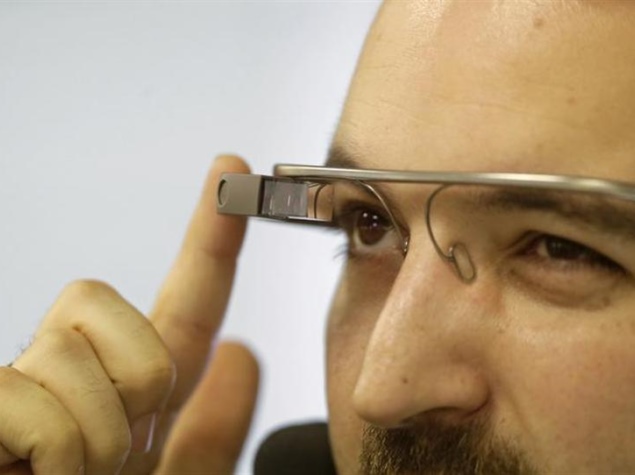- Home
- Others
- Others News
- Google Glass being tested as assistive aid for Parkinson's patients
Google Glass being tested as assistive aid for Parkinson's patients

Experts at Newcastle University in Britain are investigating Google Glass as an assistive aid to help people with Parkinson's retain their independence for longer.
In the first such trial, Google has donated five pairs of its Glass eyewear to Newcastle University to allow researchers to test how the devices could be used to support people with chronic conditions.
"Google Glass opens up a new space for exploring the design and development of wearable systems. The beauty of this research project is we are designing the apps and systems for Glass in collaboration with the users so the resulting applications should exactly meet their needs," lead researcher John Vines explained.
The team has been working with a group of Parkinson's volunteers aged between 46-70 years. They are working on the new technology to provide discreet prompts linked to key behaviours typical of Parkinson's, such as reminding the individual to speak up or to swallow to prevent drooling.
Glass can also be used as a personal reminder for things such as medication and appointments. The team is also exploring how the motion sensors in Glass can be used to support people with 'freezing' - a behaviour caused by motor blocking, and a common symptom of Parkinson's.
Parkinson's disease is a progressive neurological condition affecting up to 10 million people worldwide, with onset generally in those over 50.
The condition manifests itself in motor symptoms including rigidity, tremor and 'bradykinesia' or slowness of movement. Aside from the physical signs, there are a myriad of emotional and social factors relating to loss of independence, social confidence, embarrassment and stigma.
"Wearable computing is still quite novel but as more people buy into the technology and start to wear it out and about for leisure then systems such as Glass offer us a real opportunity for the long-term treatment of progressive conditions like Parkinson's and dementia," Roisin McNaney, a speech and language therapist, noted.
The researchers would present their initial findings later this month at the ACM Human Factors in Computing Systems (CHI) 2014 conference in Toronto, Canada.
For the latest tech news and reviews, follow Gadgets 360 on X, Facebook, WhatsApp, Threads and Google News. For the latest videos on gadgets and tech, subscribe to our YouTube channel. If you want to know everything about top influencers, follow our in-house Who'sThat360 on Instagram and YouTube.
Related Stories
- Galaxy S24 Series
- MWC 2024
- Apple Vision Pro
- Oneplus 12
- iPhone 14
- Apple iPhone 15
- OnePlus Nord CE 3 Lite 5G
- iPhone 13
- Xiaomi 14 Pro
- Oppo Find N3
- Tecno Spark Go (2023)
- Realme V30
- Best Phones Under 25000
- Samsung Galaxy S24 Series
- Cryptocurrency
- iQoo 12
- Samsung Galaxy S24 Ultra
- Giottus
- Samsung Galaxy Z Flip 5
- Apple 'Scary Fast'
- Housefull 5
- GoPro Hero 12 Black Review
- Invincible Season 2
- JioGlass
- HD Ready TV
- Laptop Under 50000
- Smartwatch Under 10000
- Latest Mobile Phones
- Compare Phones
- Motorola Edge 50 Fusion
- Oppo A1i
- Oppo A1s
- Motorola Edge 50 Ultra
- Leica Leitz Phone 3
- Moto G64 5G
- Moto G04s
- iQOO Z9 Turbo
- Asus ZenBook Duo 2024 (UX8406)
- Dell Inspiron 14 Plus
- Realme Pad 2 Wi-Fi
- Redmi Pad Pro
- Cult Shock X
- Fire-Boltt Oracle
- Samsung Samsung Neo QLED 8K Smart TV QN800D
- Samsung Neo QLED 4K Smart TV (QN90D)
- Sony PlayStation 5 Slim Digital Edition
- Sony PlayStation 5 Slim
- Onida 1.5 Ton 3 Star Inverter Split AC (IR183TSN)
- Haier 1.5 Ton 3 Star Window AC (HWU18TF-EW3BE-FS)

















